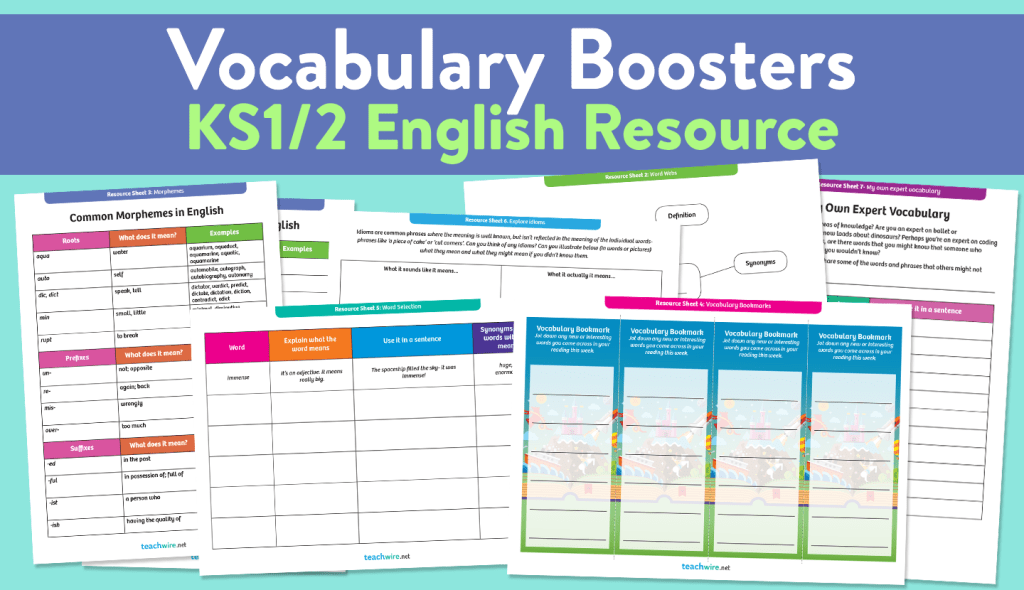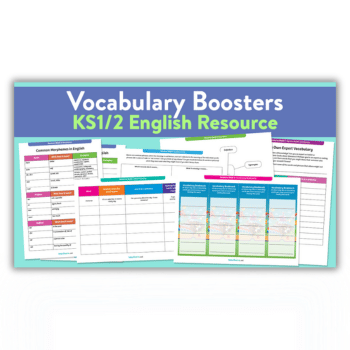Helping children to develop a rich vocabulary is one of the best ways we can support their education. In this download, you’ll find a number of vocabulary worksheets to download and use in your classroom…
Most of children’s language development and vocabulary growth will come from organic sources. This is opposed to direct teaching. They pick it up from the conversations they have with their families and their peers, and with adults at school. They also learn it through the books they read and those that are read to them.
That doesn’t mean, however, there aren’t some ways we can help children to learn new words directly. Here are seven approaches to building children’s vocabulary in the classroom, with accompanying vocabulary worksheets.

1) Display fascinating words
This wordarium worksheet enables children to jot down a new word and exhibit it in a motivating way.
2) Create word webs
This example word web and template will help children keep track of new words they learn around the same topic.
3) Explore morphology
Use this worksheet to introduce some common morphemes and encourage children to find some of their own.
4) Collect words from reading
This bookmark is a space for children to collect words as they read, then share them in class.
5) Choose the words to teach carefully
This template helps children to think about the words you have chosen to teach them regarding a specific topic such as the Romans or electrical circuits.
6) Explore idioms
This worksheet gives children the chance to think about idioms.
7) Explore different vocabularies
Pupils can use the spaces on this worksheet to share some of the words and phrases from their special areas of knowledge that others might not know.
Vocabulary development
Vocabulary development is suddenly a hot topic in education, yet schools have long recognised the relationship between language development and children’s academic success.
Teachers in particular are attuned to the importance of helping children develop both the ability to understand spoken and written language, acquiring a control of language that enables them to express their ideas and feelings clearly.
One key aspect of a child’s language development is the growth of their vocabulary – the words they can understand and the words they use to communicate.
Not surprisingly, educational research suggests a strong relationship between vocabulary and comprehension, where a broad vocabulary (knowing lots of words) and a deep vocabulary (knowing those words well) correlates with better understanding.
When children write, a wider vocabulary gives them a rich palette with which to express their ideas, choosing a word to communicate with elegance and precision.
Of course, vocabulary is just one aspect of the broad area of language development. Control of language depends on the words, but also on understanding how to employ the words, matching the purpose and audience to an appropriate grammar and syntax.
If we want children to become as skilled as they can as communicators, it will take more than just learning lots of words. But helping to grow their vocabulary isn’t a bad place to start.
James Clements is an education researcher and writer. Follow James on Twitter at @MrJClements. Browse more ambitious vocabulary resources.











